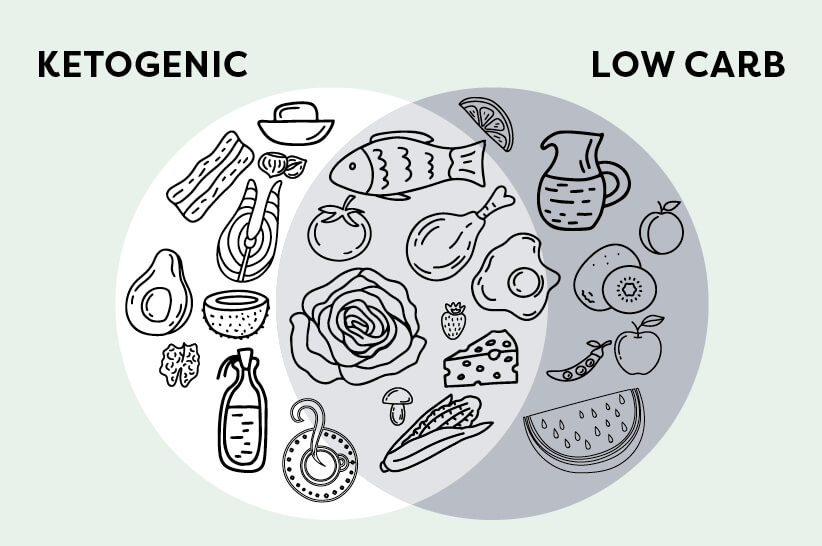When you think of it, low carb vs keto diets have a lot of similarities. First and foremost, both diets involve reducing carbohydrates. But there’s more to that.
If you’ve been trying to get fitter and probably healthier too, you may have come across low-carb and ketogenic diets. And then you asked – Is keto diet and low carb diet the same thing?
Good question.
Because in this article, we’ll be doing a deeper dive into these eating practices and how each helps meet your personal goals. This way, you’ll know which approach is best for you. So keep reading.
What Is a Low Carb Diet?
A low-carb diet eating pattern is pretty straightforward. It involves reducing your carbohydrates, which are abundant in foods like grains, grain-based foods, starchy vegetables, and most unhealthy snacks 1.
How many carbs should you limit yourself per day? Based on studies, that would be less than 130 grams per day 2. This is much lower than standard dietary guidelines for Americans that recommend consuming 225 and 325 grams daily 3.
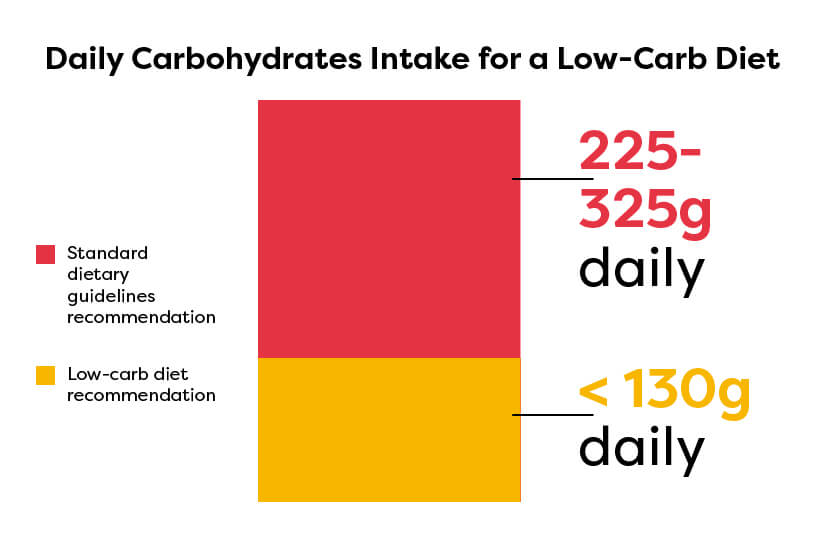
If you follow this diet, you need to stick with low-carb foods such as meat and poultry, green leafy vegetables, seafoods, dairy, and low-sugar fruits.
Over the years, we’ve heard and witnessed low-carb diets inducing weight loss. Research shows that rapid weight loss takes place within the first 6 to 12 months.
There are various assumptions to why this happens:
- One, reducing carbs means increasing protein and fat – macronutrients that boost satiety.
- You’re also less likely to experience low blood sugar levels which triggers carbohydrate cravings.
- Another hypothesis is that compared to high-carb diets, low-carb diets enable you to burn more calories 2.
Aside from weight loss, low-carb diets have also been said to lower triglycerides and increase HDL cholesterol levels – reducing your risk of heart disease.
Perhaps one of the reasons why some people opt for low-carb over keto is that it’s less restrictive. “Low-carb is much better for extreme athletes. When you train very hard and want to build more muscle mass or reduce your fat level, this diet will be a perfect choice,” said Paulina Nowak, a registered dietician at Authority Dental.
What Is the Keto Diet?
Those who don’t know what the keto diet is might ask, “Is keto low carb?” The answer is yes.
In fact, the ketogenic or “keto” diet is a very low-carbohydrate diet. People on keto need to boost their fat intake at the same time while keeping protein moderate. What the diet looks like in terms of macro percentages 4:
- Carbs – 5% to 10%
- Fat – 55% to 60%
- Protein – 30% to 35%
Here, you can see the difference between keto and low carb in terms of how many carbs you should eat. As a more restrictive diet, keto depletes the liver’s glycogen stores quickly. This leads to the production and rise of ketone bodies – which is characteristic of nutritional ketosis.
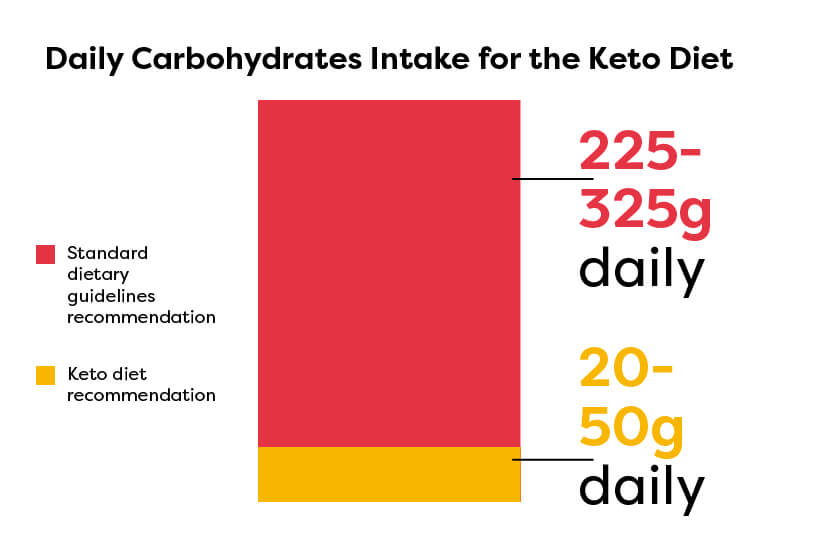
“To be truly following the keto diet, you need to be in a state of nutritional ketosis when your blood ketone levels are at or above 0.5 mmol/L,” said Jill Brown, CFSC, CNC, CGFI, CPT, of Jill Brown Fitness.
The typical carb intake per day is 20-50 grams.
It’s important to be smart about your food choices to ensure that you won’t go over your daily allowance. The best options include meat, seafood, leafy greens, and certain fruits like avocados and berries.
Like a low-carb diet, a keto diet boosts weight loss. Besides weight control, studies show that it improves brain health and could be a potential cancer therapy 5, 6.
But because the diet is quite strict, one can also expect temporary side effects such as fatigue, headache, and digestive issues.
Low Carb Vs Keto
Now that we’ve clarified the basic differences between keto vs low carb, this time we need to think about the diet that benefits your personal goals and health the most.
Common areas of concern include weight loss, hormones, energy, performance, and blood glucose control. Let’s explore them below.
Weight Loss
Both low-carb and keto diets help individuals lose weight as long as they do it correctly. This includes prioritizing cleaner foods and accompanying your diet with physical activity.
However, those experiencing a plateau on a typical low-carb diet may see better progress with keto due to the extreme carb restriction. Being in ketosis means that your body is actually burning its stored fat for fuel instead of carbs.
Sustained nutritional ketosis is also associated with appetite suppression and a greater satiety 7.
Bottom line: The keto diet is better for weight loss, especially in situations where an individual needs to bust through a plateau.
Diabetes
In terms of controlling diabetes, keto may be better
because of the lower insulin response compared to low carb,” said Tim Liu, CSCS. This improvement in insulin resistance can be due to the rise of ketones in the blood 8.
The keto diet reduces one’s blood sugar effectively and helps you keep it within low normal levels. In Virta Health’s two-year clinical trial, they demonstrated how a keto diet reduced participants’ glucose, insulin, and blood pressure. Furthermore, they were able to use less medication 9.
For a deeper dive on how the keto diet works for diabetes, read this guide.
Bottom line: Keto is a better option for keeping blood sugar under control. Many studies show how it can be helpful for those trying to prevent or fight Diabetes.
Energy
Low-carb vs keto which is better for sustained energy? The truth is, both diets are beneficial for physical performance. This is because you no longer experience energy crashes (a.k.a. reactive hypoglycemia) that result from eating too much sugar.
Some individuals thrive by simply decreasing their carbs a little, while others who tend to be very sensitive to blood sugar spikes do better with keto. If you haven’t tried any of these diets, you might need to experiment to see which works best for you.
Bottom line: The diet of choice in this case will depend on the individual’s response.
Female hormonal health
This area can be a little tricky because women undergo several hormonal changes throughout their lives. They can go follow a keto diet which helps balance their hormones and improve weight loss, especially for women undergoing menopause.
On the other hand, women in their reproductive age tend to crave for more carbohydrates around their period. The days leading up to your period can make strict carb reduction difficult since serotonin levels drop.
That is why it’s fine for women to eat a low-carb diet instead of a keto diet during this time of the month. In fact, this strategy may be helpful for easing mood swings and reducing stress.If you personally prefer a keto diet, here’s how you can use it for your hormonal health.
Brown offers some valuable advice:
For hormone health it is important to eat nutritious veggies, particularly leafy greens and cruciferous veggies.
Eating fish high in Omega-3s and healthy monounsaturated fats are also important. All of these are allowed on both diets. Plus be sure to have enough protein, sleep and be careful not to under eat!”
Bottom line: Women can switch between low-carb and keto depending on their menstrual cycle and hormonal changes.
Athletes
Low carb vs keto in bodybuilding and athletic performance – which one to follow?
The keto diet can be a good strategy for losing body fat and building muscle. There are helpful strategies to optimize keto for muscle gains, and one of them is “carbing up” before a workout session for added energy.
When it comes to athletes, well, your diet of choice depends on what activities you do. A keto diet benefits endurance athletes, runners for examples, by increasing their ability to use stored body fat as fuel, reducing fatigue, and improving recovery 10.
On the other hand, activities that require bursts of energy, such as sprinting, will benefit from additional carbohydrates in the diet.
Bottom line: A keto diet is beneficial for endurance sports. More carbs are needed for high intensity activities.
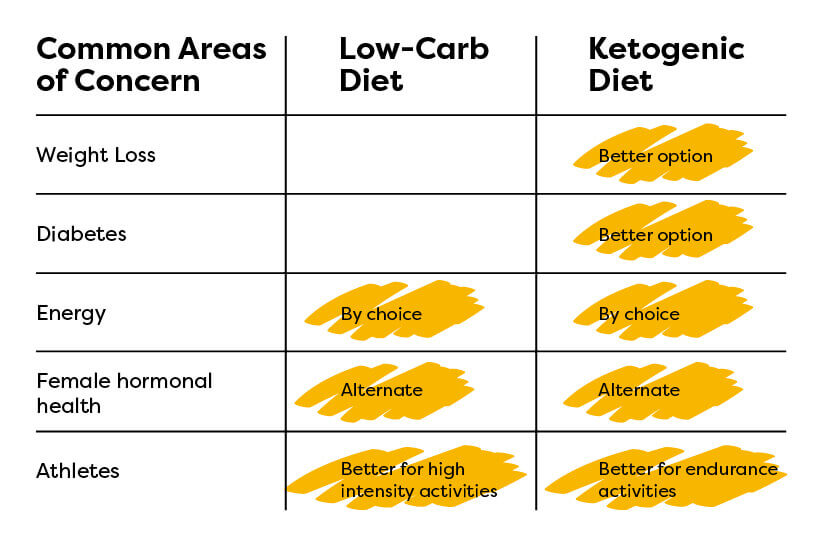
Which Is the Right Diet for You?
As you have just learned, you can follow keto or low carb for cutting weight and achieving other goals such as better energy, blood sugar control, performance, and hormonal health.
The right answer to which diet is best is – it depends. Each person responds differently to low-carb or keto, and in order to tell, you’ll have to try it yourself.
There you have it. Now that we’ve explained the differences between low-carb and keto, all that’s left for you is to decide. Most importantly, do your research, know the advantages and always speak with a doctor before starting a diet.
Takeaways
- A low-carb diet limits carbs to 130 grams or less per day while a keto diet limits carbs to 20-50 grams per day which makes it more restrictive.
- For weight loss, a keto diet is best, especially if you’re trying to overcome a plateau on a typical low-carb diet.
- A study showed that nutritional ketosis helps individuals with diabetes.
- For sustained energy, decreasing carbs affects people uniquely, which makes both keto and low-carb good options.
- Women may need to adjust their carb intake depending on their hormonal changes to maintain health.
- For athletic performance, it depends on what kind of activity you’ll be doing.




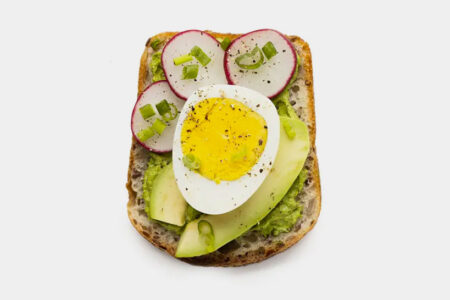
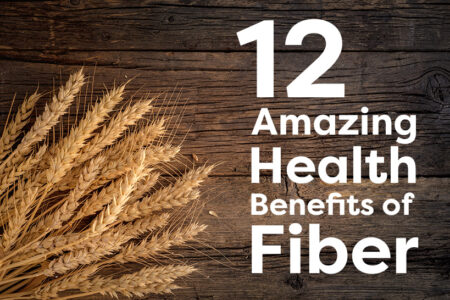




![Juicing for Weight Loss: Everything You Need to Know [Plus Recipes]](/wp-content/uploads/2019/08/Juicing-for-Weight-featured-image.jpg)






